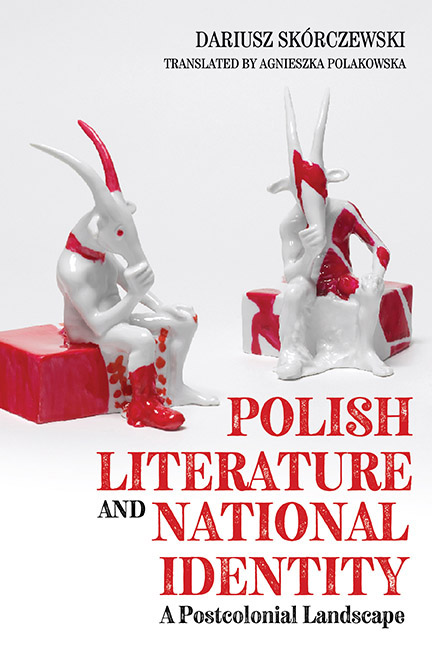Book contents
- Frontmatter
- Dedication
- Contents
- Acknowledgments
- Prologue: How It All Began
- 1 Through the Lens of Humanism, with a View to Transcendence
- 2 Postcolonialism in Poland
- 3 National Identity in a Postcolonial Framework: Necessary Clarifications and Opening Suggestions
- 4 Literature as Compensation: Comprador Intelligentsia vis-à-vis the Hegemonic Discourse—Preliminary Theoretical Remarks
- 5 Confronting the Romantic Legacy
- 6 The Natives’ Exclusion by the Empire's Poet? (Adam Mickiewicz, The Crimean Sonnets)
- 7 Identity as an Object of Inquiry (Pawel Huelle's Castorp)
- 8 The (East-)Central European Complex (Andrzej Stasiuk, On the Road to Babadag and Fado)
- 9 Colonized Poland, Orientalized Poland: Postcolonial Theory and the “Other Europe”
- 10 Slavic Issues with Identity: Marginal Notes to Maria Janion's Uncanny Slavdom
- 11 The Melancholia of Borderlands Discourse
- Afterword: Three Warnings
- Notes
- Bibliography
- Index
9 - Colonized Poland, Orientalized Poland: Postcolonial Theory and the “Other Europe”
Published online by Cambridge University Press: 25 March 2020
- Frontmatter
- Dedication
- Contents
- Acknowledgments
- Prologue: How It All Began
- 1 Through the Lens of Humanism, with a View to Transcendence
- 2 Postcolonialism in Poland
- 3 National Identity in a Postcolonial Framework: Necessary Clarifications and Opening Suggestions
- 4 Literature as Compensation: Comprador Intelligentsia vis-à-vis the Hegemonic Discourse—Preliminary Theoretical Remarks
- 5 Confronting the Romantic Legacy
- 6 The Natives’ Exclusion by the Empire's Poet? (Adam Mickiewicz, The Crimean Sonnets)
- 7 Identity as an Object of Inquiry (Pawel Huelle's Castorp)
- 8 The (East-)Central European Complex (Andrzej Stasiuk, On the Road to Babadag and Fado)
- 9 Colonized Poland, Orientalized Poland: Postcolonial Theory and the “Other Europe”
- 10 Slavic Issues with Identity: Marginal Notes to Maria Janion's Uncanny Slavdom
- 11 The Melancholia of Borderlands Discourse
- Afterword: Three Warnings
- Notes
- Bibliography
- Index
Summary
The history of East-Central Europe can be conceptualized in a number of ways. It can be understood as sequence of political moves, macroeconomic decisions, and state-sanctioned military actions, taking into account also the culture forming activities of its inhabitants. It can also be interpreted as the history of contacts—diplomatic, economic, cultural, and religious—between European as well as non-European states, nations, and ethnic groups. It can be presented as a continuum that has been disrupted by great turns of events that played the role of milestones in the development of societies. It can also be understood in line with Janusz Tazbir's proposal as the history of the “monuments of human thought”—of exceptional and of “nefarious” works that decisively impacted the fate of individuals and of collectives in the eastern part of the continent.1 Lastly, it can be viewed in categories of met a-history: as a history made up of historiographic narrations—of the constantly renewed interpretations (meaning constructions) of history of the other, younger, or, as some opine, inferior, backward, and anachronistic Europe.
“Inventing” Eastern Europe
The last, meta-historical type of historiographical reflection includes Larry Wolff 's Inventing Eastern Europe: The Map of Civilization on the Mind of the Enlightenment. The book analyzes the sources and the process of constructing—“ inventing”—the myth of an un( der)developed, chaotic, and barbarian “East” of Europe, an Orient in a truly Saidian sense. As Wolff argues, this myth, a product of Western European Enlightenment, contributed in an unprecedented degree to entrenching the civilizational and cultural supremacy of the West. His main thesis can be summarized as follows: to consolidate its optimistic self-image as the embodiment of the Enlightenment's ideals of progress, the West needed a less developed, uncivilized, backward, and immature Other, which it had to represent and name accordingly, bestowing it with the identity it generated. The “invention” of this Other was a consequence of finding excellent materials for its creation among the peripheral regions that stretched between Germany and Russia and encompassed territories from the Baltic sea to the Balkans (with small exceptions, such as Austria). The West arrived at this “invention” via the pens of its Enlightenment humanists: Fichte, Herder, Voltaire, and Rousseau, with others—diplomats, thinkers, scientists, travelers and writers—following in their footsteps.
- Type
- Chapter
- Information
- Polish Literature and National IdentityA Postcolonial Landscape, pp. 176 - 192Publisher: Boydell & BrewerPrint publication year: 2020

